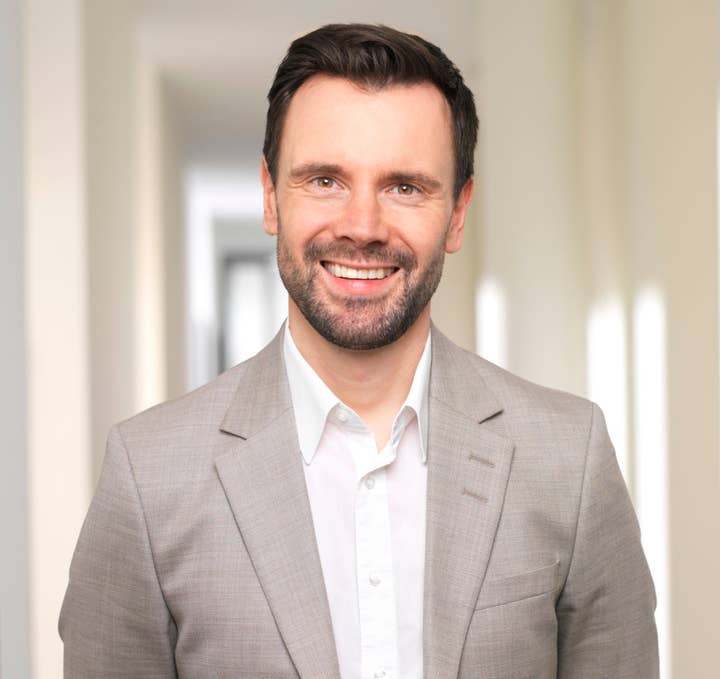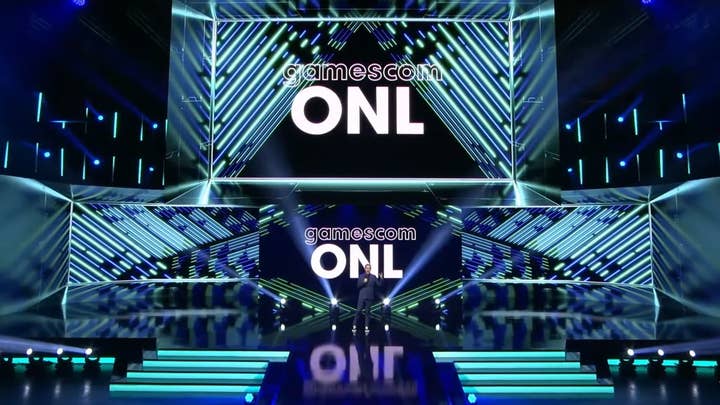What does Gamescom look like in a post-E3 world?
Gamescom's Felix Falk and Christoph Werner talk us through plans for this year's show and future ambitions
Gamescom is more than just a week in Cologne.
The world's biggest games show has expanded dramatically in recent years with the launch of satellite events in other markets; first with Gamescom Asia in Singapore, which debuted in 2021, and this year heading to Brazil with the first Gamescom Latam.
The Cologne show already prided itself on being an international event, attracting companies and visitors from all over the world and representing different nations with the country pavilions found in the business halls. But co-organiser Felix Falk, also managing director of German games trade association Game, says the physical expansion into other territories demonstrates the global role Gamescom aims to play in the games industry.
"We want to be the most relevant show for the industry," he says. "We want to keep up with the developments and dynamics of the industry as a show to build a stage and have the most exciting and most important game festival worldwide, connecting the industry and the community in real life and also on a hybrid basis.
"The two satellites means that we're not only in one spot in the world. If you are in South America or Asia and you can't come to Gamescom, Gamescom will be close to you in the future."

"The beauty of Gamescom is that it's not only Opening Night Live, a two-hour showcase, and that's it. There's the connection to the real festival and a lot of potential still to be found"
Felix Falk, Gamescom
Christoph Werner, senior vice president of Gamescom's organiser and venue Koelnmesse, adds that the success of these satellites is already boosting international participation at the Cologne show. The number of country pavilions at this year's show has seen double digit growth, with 48 such booths from 37 countries.
With two additional territories under its belt, the Gamescom organisers are now focused on developing these shows rather than seeking their next expansion. While Falk says they remain open to the possibility, any additional event "has to be a unique and perfect match in order to fulfil the promises Gamescom gives if you open up something new."
He points to the feedback he experienced while visiting Gamescom Latam in June. The two most common things he heard was that it was considerably bigger than the BIG Festival that had come before it, and that it felt very much like Gamescom, albeit smaller.
"Those two things are the promises and they are really not easy to fulfil. You need perfect timing, perfect partner set up. It just needs to be at the right time, the right space and we are happy that we were able to do this in Latam and in Asia. But you can't open up something every year somewhere and expect a perfect match like this."
Of course, there's an opening in the US now that E3 is no more, although Falk responds that those perfect matches are "hard to find in LA." Nonetheless, with the longest running and highest profile games trade show now gone, is there an opportunity for Gamescom to fill the void, either in Cologne or by coming to the US?
"So many people from the US and from all over the world are coming to Gamescom now in August, but also to Gamescom Latam and to Gamescom Asia," says Falk. "So from our perspective, everything is already happening at Gamescom. There's nothing missing right now. If the industry also asks us to engage with [the US] even more in the future… well, that's a question I leave to the future."
The death of E3 is an interesting lens through which we can look at the success of Gamescom. A key factor in its demise was the declining support from major publishers and platform holders. PlayStation, Electronic Arts, Activision and others abandoned the show years ago, and this year's efforts to revive the event failed in no small part because the industry support failed to materialise — particularly from key players like Sony and Nintendo.
Neither platform holder is attending Gamescom 2024, and yet the organisers announced yesterday that they've secured a record number of exhibitors — more than 1,400 companies — are expecting more attendees than in 2023. Falk even confirms that the absence of PlayStation, Nintendo and EA in certain previous years "had no real effect on the community," so how is Gamescom able to weather the sort of setbacks that killed E3?
For Falk, it's the community-driven focus of Gamescom and the range of companies on offer: "It's so broad. With 1,000 exhibitors, you find something you like. You can spend three days at the show and still find something new. Many people love to go to the indie area, for example, which gets bigger and bigger every year — you can find plenty of games everywhere. So this festival approach is such a good thing that we don't have a dependence on specific brands.
"Saying this, of course — especially as an association — we want to build a stage for all the members. So it's great that EA is with Gamescom this year, that Nintendo was at Gamescom again last year, and this year Nintendo was at Gamescom Latam."

Another challenge events of this type face is a lack of game code. In recent years, companies have been unable to exhibit at the shows they have usually supported in the past because they are unable to deliver the demo code needed to give players hands-on experience with upcoming titles. Equally, the release slate is shifting, with fewer major releases each year compared to when Gamescom first began.
Falk notes that this will "never be like it was before" — something the Gamescom team learned very quickly, especially during the COVID years.
"The whole two digital years for Gamescom made us much more agile, which I think is a part of the success, because we have to adjust faster to what the industry needs and also to who the industry is."
Werner adds that becoming a hybrid show has also helped Gamescom evolve, and this began long before the pandemic with the introduction of Opening Night Live, the livestreamed showcase hosted by Geoff Keighley. This is also expected to grow this year, with capacity for double the number of in-person attendees in addition to the people tuning in online around the world.
Falk recalls part of the motivation behind this pillar of Gamescom was the perception that "E3 is about new announcements and announcement shows, and Gamescom is about playing demos." This encouraged the Koelnmesse team to create something that combined the on-stage showcases of E3 with the on-site exhibition they were already providing.
"General interest media or politicians don't go to events where only one company or one platform or something attends," he says. "It's all about this [wider] industry showcase. [We can also] give something back to those companies and partners who are present and really big on the floor, giving them a space for digital reach that we can create with Opening Night Live. So I think it connects really well and it's a great partnership with Geoff.
"The beauty of Gamescom is that it's not only Opening Night Live, a two-hour showcase, and that's it. There's the connection to the real festival and I think there's a lot of potential still to be found by us and partners."

"There's not a business case behind [Epix and trading cards] but I think it's a very nice way to interact with our community"
Christoph Werner, Koelnmesse
Koelnmesse is also constantly finding new ways to expand the offerings on the show floor itself. Additions this year include an artists' area, where artists can draw guests in the style of popular video games, as well as more tabletop and trading card games, plus a new social stage in Hall 11. The latter will focus solely on community activities — music performances, content creator sessions, and so on — which speaks to Gamescom's efforts to help influencers get more out of the show.
"We noticed we had some really big creators, just walking in the halls so we created this stage to make them visible, but also in a curated context," he said.
Meanwhile, Werner points to the online experience for those who aren't able to make it to Cologne. A prime example of this is Gamescom Epix, a series of 'quests' available through the event's website. Quests can range from taking quizzes set up by exhibitors to engaging with certain games (for example, reaching Level 11 in Niantic and Capcom's Monster Hunter Now). Completing quests will earn rewards such as vouchers, discounts, and even game demos. Last year, 375,000 quests were completed and the team is hoping for similar success this year.
The aim of all this is to 'gamify' the wait for Gamescom, as well as the week itself. Similarly the new digital trading card game allows users to collect elements of Gamescom, which also boosts awareness of what the show has to offer.
"There's not a business case behind this right now," Werner admits, "but I think it's a very nice way to interact with our community."
And ultimately this comes down to that core message of Gamescom being more than just a week in Cologne. Falk points to the number of exhibitors who are taking a more holistic approach to the show, thinking beyond what's on their booth but also what they can do online and in the run-up to the event.
"It's another part of creating a stage for the companies," he says. "They can tease the games they will show at Gamescom [in Epix], build up something together with Gamescom showcase at Opening Night Live, and then you go to have a developer talk in the IGN studio. Afterwards, you have a presentation at your booth and you win an award. It's not just five days to show off in a booth you built — you can get the most out of all the components we created over the years."

